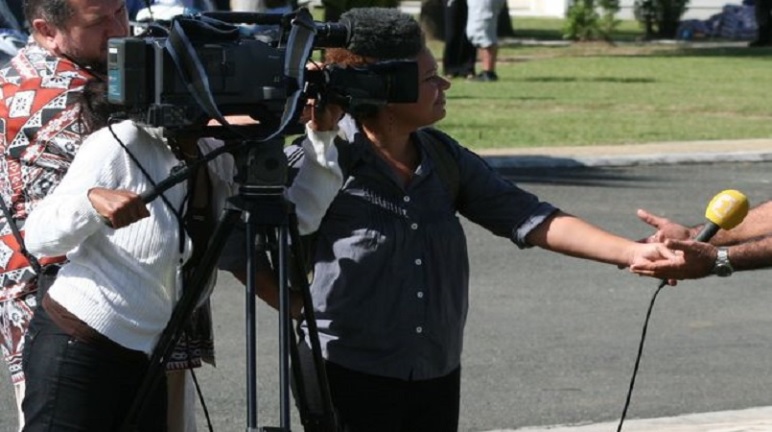Related News

Picture: LOOP VANUATU
By JOSEPHEEN TARIANGA
ON March 31, the Supreme Court of Vanuatu ruled in favour of the Trading Post and its related properties in a case against the Government for what can be seen as an attack on free media.
This milestone achievement a true mark of the country’s new media era. The media climate in Vanuatu has evolved greatly in the last decade and as media literacy increases demand by the Government and the people for accountable and ethical media practices follow suit.
In 2015, then Prime Minister Sato Kilman delivered an impassioned warning to media companies and social platforms stating that Vanuatu is a small community and if media is not used correctly, it could destabilise the community.
With the looming threat of media regulation laws, the media took this criticism constructively and rose to the challenge. Headed by pioneer journalists and media veterans, the industry created a community, maneuvered the changes with traditional and digital media as well as the new issues digital media brought all while remaining true in its pursuit for truth in the public interest.
In this pursuit, the former media director and publisher of Daily Post, Dan McGarry had his work permit revoked in 2019. Under his leadership, the newspaper constantly
held the Government accountable for its actions.
A similar case had occurred in 2001 when then newspaper publisher, Marc-Neil Jones, was deported. A regressive step for free media was taken with the expansion of criminal libel and
slander in the amendment to the Penal Code Act (CAP 135) under the Bill of the Statute Law (Miscellaneous Provisions) Act No. of 2021; warranted its first arrests only weeks after being gazetted.
In this same timeline, Vanuatu saw media come together.
In 2016, Pacific Media Assistance Scheme (PACMAS) in collaboration with Vanuatu women’s center (VWC) hosted a workshop for media to educate journalists on how to report on issues of domestic violence against women. In 2021, PACMAS joined by feminist-based organisation, Sista, opened discussions about challenges that women working in Vanuatu media face.
Also, in 2021 the Media Association of Vanuatu (MAV) hosted its first Inaugural media awards celebrating excellence in journalism as well as recognising the veterans of the industry.
In 2022, all Vanuatu Media companies supported the Pacific Media Assistance Scheme (PACMAS), a media training workshop that trained, young, passionate individuals to help the work of media by joining its ranks.
The first of its kind, it resulted in several bright minded newly-trained journalist joining different news organisations and in January of 2023, MAV launched the Code of Ethics Handbook in three languages.
This handbook, also the first of its kind, is Vanuatu’s media code. A tool created specifically to aid the work of media in Vanuatu, that if adhered to, attacks on media freedom cannot hide behind a façade of public interest or national security.
On March, 31st 2023, the supreme court ruled not only in favor of Trading Post, but in favour of a free media that is evolving, changing, better.
Wavemaker journalist McGarry, said the people of Vanuatu had a clearer understanding of law and governance than many others: “We joke about bush lawyers, but our interest in the law — and respect for it — is a product of how we in the media portray it.”
* Josepheen Tarianga is a second-year journalism student (Vanuatu) at The University of the South Pacific.